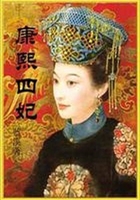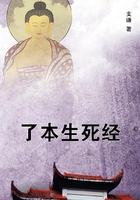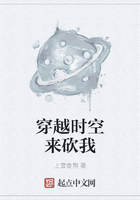THE GREAT WAR WHICH WAS REALLY
THE STRUGGLE FOR A NEW AND BETTER WORLD.
THE Marquis de Condorcet was one of the noblest characters among the small group of honest enthusiasts who were responsible for the outbreak of the great French Revolution.
He had devoted his life to the cause of the poor and the unfortunate.
He had been one of the assistants of d'Alembert and Diderot when they wrote their famous Encyclopedie. During the first years of the Revolution he had been the leader of the Moderate wing of the Convention.
His tolerance, his kindliness, his stout common sense, had made him an object of suspicion when the treason of the king and the court clique had given the extreme radicals their chance to get hold of the government and kill their opponents.
Condorcet was declared "hors de loi," or outlawed, an outcast who was henceforth at the mercy of every true patriot. His friends offered to hide him at their own peril. Condorcet refused to accept their sacrifice. He escaped and tried to reach his home, where he might be safe. After three nights in the open, torn and bleeding, he entered an inn and asked for some food. The suspicious yokels searched him and in his pockets they found a copy of Horace, the Latin poet. This showed that their prisoner was a man of gentle breeding and had no business upon the highroads at a time when every educated person was regarded as an enemy of the Revolutionary state.
They took Condorcet and they bound him and they gagged him and they threw him into the village lock-up, but in the morning when the soldiers came to drag him back to Paris and cut his head off, behold! he was dead.
This man who had given all and had received nothing had good reason to despair of the human race. But he has written a few sentences which ring as true to-day as they did one hundred and thirty years ago. I repeat them here for your benefit.
"Nature has set no limits to our hopes," he wrote, "and the picture of the human race, now freed from its chains and marching with a firm tread on the road of truth and virtue and happiness, offers to the philosopher a spectacle which consoles him for the errors, for the crimes and the injustices which still pollute and afflict this earth."
The world has just passed through an agony of pain compared to which the French Revolution was a mere incident.
The shock has been so great that it has killed the last spark of hope in the breasts of millions of men. They were chanting a hymn of progress, and four years of slaughter followed their prayers for peace. "Is it worth while," so they ask, "to work and slave for the benefit of creatures who have not yet passed beyond the stage of the earliest cave men?"
There is but one answer.
That answer is "Yes!"
The World War was a terrible calamity. But it did not mean the end of things. On the contrary it brought about the coming of a new day.
It is easy to write a history of Greece and Rome or the Middle Ages. The actors who played their parts upon that long-forgotten stage are all dead. We can criticize them with a cool head. The audience that applauded their efforts has dispersed. Our remarks cannot possibly hurt their feelings.
But it is very difficult to give a true account of contemporary events. The problems that fill the minds of the people with whom we pass through life, are our own problems, and they hurt us too much or they please us too well to be described with that fairness which is necessary when we are writing history and not blowing the trumpet of propaganda. All the same I shall endeavour to tell you why I agree with poor Condorcet when he expressed his firm faith in a better future.
Often before have I warned you against the false impression which is created by the use of our so-called historical epochs which divide the story of man into four parts, the ancient world, the Middle Ages, the Renaissance and the Reformation, and Modern Time. The last of these terms is the most dangerous. The word "modern" implies that we, the people of the twentieth century, are at the top of human achievement.
Fifty years ago the liberals of England who followed the leadership of Gladstone felt that the problem of a truly representative and democratic form of government had been solved forever by the second great Reform Bill, which gave workmen an equal share in the government with their employers. When Disraeli and his conservative friends talked of a dangerous "leap in the dark" they answered "No." They felt certain of their cause and trusted that henceforth all classes of society would co-operate to make the government of their common country a success. Since then many things have happened, and the few liberals who are still alive begin to understand that they were mistaken.
There is no definite answer to any historical problem.
Every generation must fight the good fight anew or perish as those sluggish animals of the prehistoric world have perished.
If you once get hold of this great truth you will get a new and much broader view of life. Then, go one step further and try to imagine yourself in the position of your own great- great-grandchildren who will take your place in the year 10,000. They too will learn history. But what will they think of those short four thousand years during which we have kept a written record of our actions and of our thoughts?
They will think of Napoleon as a contemporary of Tiglath Pileser, the Assyrian conqueror. Perhaps they will confuse him with Jenghiz Khan or Alexander the Macedonian. The great war which has just come to an end will appear in the light of that long commercial conflict which settled the supremacy of the Mediterranean when Rome and Carthage fought during one hundred and twenty-eight years for the mastery of the sea.















